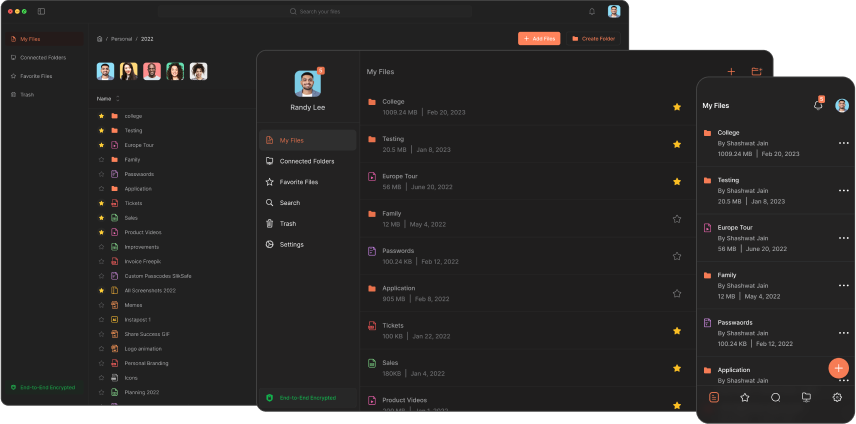Scan To PDF
Scan your files using AI and remove the background.Click or drag file to this area to upload
Support for a single PDF file upload. File size should be less than 10MB.
Introduction to Computer Scans: Safeguarding Your Digital Life
In today's technology-driven world, computers are integral to both personal and professional life. While they offer a multitude of conveniences, they are also susceptible to various threats such as malware, viruses, and system errors. Regularly scanning your computer is an effective measure to maintain its health and security. This blog will provide a comprehensive guide on computer scans, explaining their importance, the types, and how to perform them to ensure optimal performance and protection.
Why Scanning Your Computer is Essential
Scanning your computer periodically is crucial for the following reasons:
- Security: Detects and removes malware, spyware, ransomware, and other malicious software.
- Performance: Identifies and fixes system errors, improving speed and efficiency.
- Data Protection: Prevents data corruption and unauthorized access to sensitive information.
- Longevity: Extends the lifespan of your hardware by ensuring it functions efficiently.
Types of Computer Scans
Various types of computer scans are designed to address different issues:
1. Virus Scan
A virus scan identifies and eliminates viruses. It is crucial as viruses can corrupt files, steal data, and cause system malfunctions.
2. Malware Scan
Malware scans focus on finding and removing malicious software. These scans are essential for protecting personal information and preventing security breaches.
3. System Scan
System scans check the overall health of your computer, identifying potential issues such as outdated drivers, resource-heavy applications, or storage inefficiencies.
4. Disk Scan
Disk scans, including Check Disk in Windows, examine your hard drive for errors. This is vital for preventing data loss and maintaining system stability.
5. Network Scan
Network scans detect any vulnerabilities or unauthorized devices connected to your network. It enhances your network security.
How to Scan Your Computer: Step-by-Step Guide
Using Built-in Tools
For Windows Users
- Windows Security: Navigate to Start > Settings > Update & Security > Windows Security > Virus & Threat Protection.
- Quick Scan: Select Quick Scan for a rapid check of critical files and folders.
- Full Scan: Choose Full Scan for a more thorough inspection of your entire system.
- Custom Scan: Opt for Custom Scan to focus on specific drives or directories.
For Mac Users
- XProtect: macOS is equipped with XProtect, an anti-malware application that provides basic protection.
- Disk Utility: Use Disk Utility for disk scans. Navigate to Applications > Utilities > Disk Utility, then select First Aid.
Using Third-party Software
Numerous third-party applications offer comprehensive scanning solutions. Here are some recommended options:
- Norton Antivirus: Provides robust virus and malware scanning along with real-time protection.
- Malwarebytes: Specializes in removing malware, spyware, and other malicious threats.
- CCleaner: Focuses on system health, cleaning temporary files, and optimizing performance.
- Advanced SystemCare: Offers an all-in-one solution for system scans, performance optimization, and malware protection.
Regular Maintenance Tips
To ensure your computer remains in top shape, follow these best practices:
- Schedule Scans: Automate virus and system scans to run weekly or monthly.
- Keep Software Updated: Regularly update your operating system and applications to patch known vulnerabilities.
- Backup Data: Maintain regular backups of important files to prevent data loss.
- Monitor Network: Keep an eye on network activity to identify and address any unauthorized access.
- Use Strong Passwords: Protect your system with complex passwords and enable two-factor authentication where possible.
Troubleshooting Common Scanning Issues
Even the best solutions can encounter problems. Here are some common issues and their resolutions:
- Slow Scans: If scans are taking too long, try closing unnecessary applications and running the scan in Safe Mode.
- Incomplete Scans: Perform system updates and restart your computer before attempting another scan.
- False Positives: Sometimes, legitimate software may be flagged as malicious. Ensure your software is from trusted sources and whitelist it if necessary.
- Scan Errors: Reinstalling or updating your scanning tool can often resolve persistent errors.
Conclusion: Take Control of Your Computer's Health
Regular computer scans are not just an optional task but a necessity for maintaining a secure and efficient digital environment. By understanding the types of scans available and how to execute them effectively, you are better equipped to protect your device from threats and ensure its optimal performance.
Take the first step towards safeguarding your digital life: schedule your next scan today and regularly maintain your computer to enjoy a seamless and secure computing experience.
Call-to-Action
Have you scanned your computer this month? Don't wait until it's too late—take action now! Share this blog with your friends and family to help them protect their digital devices too. Stay informed and stay secure!
Meta Description:
Learn the importance of scanning your computer, different types of scans, and how to perform them for optimal security and performance. Regular scans can safeguard your digital life effectively.
Keywords:
Computer Scans, Virus Scan, Malware Scan, System Scan, Disk Scan, Network Scan, How to Scan Computer, Computer Security, Data Protection, Optimize Performance
By focusing on these aspects, you will not only improve your computer's health but also ensure a safer digital experience. Happy scanning! 🚀
Download Now
The Slikest Files Experience Ever Made

